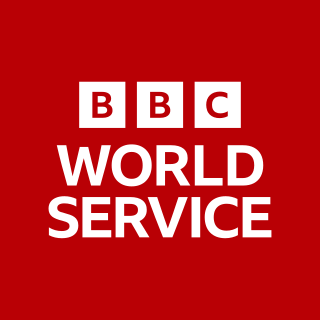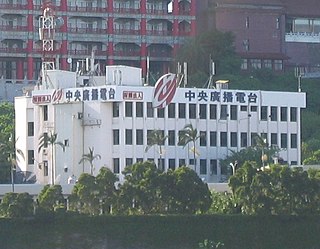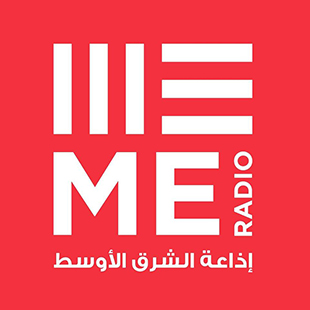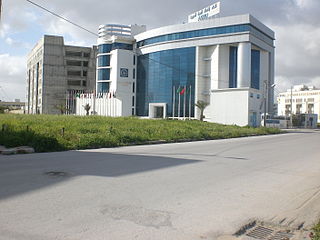External links
- FMLIST worldwide database of FM stations
- FMSCAN worldwide FM reception prediction
- MWLIST worldwide database of MW and LW stations
- MWSCAN worldwide MW and SW reception prediction
- Radio in Asia
- Worldwide FM Internet Radio
This is a list of notable radio stations in Asia for which there are Wikipedia articles.
Foreign Stations:
Foreign Stations:
Foreign Stations:
Foreign Stations:
Foreign Stations:
Foreign Stations:
Foreign Stations:
Foreign Stations:
Foreign Stations:
Foreign Stations:
Foreign Stations:

The BBC World Service is an international broadcaster owned and operated by the BBC. It is the world's largest external broadcaster in terms of reception area, language selection and audience reach. It broadcasts radio news, speech and discussions in more than 40 languages to many parts of the world on analogue and digital shortwave platforms, internet streaming, podcasting, satellite, DAB, FM and MW relays. In 2015, the World Service reached an average of 210 million people a week. In November 2016, the BBC announced that it would start broadcasting in additional languages including Amharic and Igbo, in its biggest expansion since the 1940s.
International broadcasting, in a limited extent, began during World War I, when German and British stations broadcast press communiqués using Morse code. With the severing of Germany's undersea cables, the wireless telegraph station in Nauen was the country's sole means of long-distance communication.

The American Forces Network (AFN) is a government television and radio broadcast service the U.S. military provides to those stationed or assigned overseas. Headquartered at Fort George G. Meade, Maryland, AFN's broadcast operations, which include global radio and television satellite feeds, emanate from the AFN Broadcast Center/Defense Media Center in Riverside, California. AFN was founded on 26 May 1942, in London, as the Armed Forces Radio Service (AFRS).
Radio Sawa is a U.S. government-funded radio station broadcasting in the Arab world. The station is a service of the Middle East Broadcasting Networks, Inc., which also operates Alhurra Television and is publicly funded by the U.S. Agency for Global Media and the U.S. Congress. The word "sawa" means "together" in many Arabic dialects.

Radio Taiwan International is the English name and call sign of the Central Broadcasting System (CBS), national broadcaster and international radio service of Taiwan. It is a government-owned station that broadcasts in 14 languages around the world via the internet, shortwave and podcasts. It also has Facebook fan pages in five additional languages. The station’s hosts and programs have won many national and global broadcasting awards.

Orbit Communications Company was a privately owned Pay TV network, operating in Bahrain. Owned by Saudi Arabia–based Mawarid Holding, it was the first fully digital, multi-channel, multi-lingual, pay television service in the Middle East and North Africa and was also the world's first fully end to end digital TV network. Launched in 1994, it was originally situated in Tor Sapienza, Rome, Italy as the location was considered entirely suitable to build a satellite farm. Orbit employed around 600 employees who were largely a combination of British and Italian staff with several Arabic speaking nations also represented. Orbit broadcast in several languages around the world including English, Arabic, French and Filipino.

The Voice of Vietnam or VOV is the Vietnamese national radio broadcaster. Directly controlled by the government of Vietnam, it is tasked propagating the policies of the Party and the laws of the state.

CHOU is a multilingual Canadian radio station broadcasting in Montreal, Quebec at 1450 kHz and retransmitted at 104.5 MHz. The main programming is in Arabic language and caters for various Arab and Middle Eastern communities in Greater Montreal and vicinity in Arabic including Lebanese, Syrian, Egyptian and Maghrebi dialects. CHOU also runs a two-hour weekly show in Armenian. It is also offered online and on various applications.
Rotana Media Group, commonly known as Rotana, is a Saudi Arabian entertainment company. It is primarily owned by Saudi prince Al Waleed bin Talal.
The mass media in Iraq includes print, radio, television, and online services. Iraq became the first Arab country to broadcast from a TV station, in 1954. As of 2020, more than 100 radio stations and 150 television stations were broadcasting to Iraq in Arabic, English, Kurdish, Turkmen, and Neo-Aramaic.

The Arab States Broadcasting Union (ASBU) is an Arab joint-action institution related to the League of Arab States and the Pan-Arab Association of Public Service and Commercial Broadcasters. Founded in February 1969 in Khartoum, ASBU is a professional organization with the objective of strengthening ties and promoting cooperation among broadcasters in the Arab States for better production and content development. ASBU provides important services such as engineering and consulting services, radio and television exchange of news, programming and sports, as well as radio and TV training. It also strives to acquire broadcasting rights at preferential rates for a number of competitions and sports events to the benefit of its members, as well as to ensure the appropriate broadcasting coverage of such events.
Television in Saudi Arabia was introduced in 1965, but is now dominated by just five major companies: Middle East Down Broadcasting Center, SM Enterprise TV, Lebanese Broadcasting Corporation, Rotana and Saudi TV. Together, they control 80% of the pan-Arab broadcasting market. Saudi Arabia is a major market for pan-Arab satellite and pay-TV. Saudi investors are behind the major networks MBC, which is based in Dubai, and Emirates based OSN. The Saudi government estimated that in 2000 the average Saudi spent 50% to 100% more time watching television than his or her European or US counterpart. On average, 2.7 hours are spent daily watching TV in Saudi Arabia.
Radio broadcasting started in Bahrain in 1940 by the British as a war-measure. Regular radio broadcasting, in Arabic, first started in 1955. By 1980, the radio service broadcast up to 14 hours a day. The country's first English language radio station started in 1977, as a result of an increase in English speakers in Bahrain and the Persian Gulf region. The radio's programs were primarily religious and educational, with occasional news announcements.
Radio stations located at 93.0 FM include: